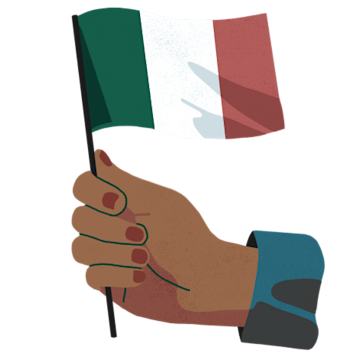
Moving to Milan: Essential Guide for Expats in 2024
Milan's expat community is diverse and growing, with professionals from around the world choosing this dynamic Italian city as their home. Here's what you need to know about moving to Milan as an expat.

Hand holding Italian flag against sky
Housing Options in Milan
There are three main types of rental agreements in Milan:
- Freely negotiated (4+4): Four-year contracts with negotiable prices and automatic four-year renewal
- Regulated (3+2): Three-year contracts with association-set prices and two-year extension option
- Short-term: Up to 18 months, ideal for students and business travelers
When buying property, expect these costs:
- Real estate agency commission: ~3%
- Land registration tax: 2% (first home) or 9% (second home)
- Fixed mortgage tax: €50
- Fixed stamp duty: €50
- Notary fees: Variable
Best Districts for Expats
- Navigli: Historic canals, vibrant nightlife
- Tortona: Creative hub, design district
- Corso Sempione: Elegant residential area
- Isola: Traditional meets modern
- Porta Nuova: Business district, modern living
- Porta Romana: Safe, well-connected residential area
- Città Studi: University district, student-friendly
Education
Top universities include:
- Politecnico di Milano: Engineering and design
- University of Milan: Comprehensive public university
- Bocconi University: Business and economics
- Catholic University of the Sacred Heart: Europe's largest Catholic university
- NABA: Arts and design
- SDA Bocconi: Management studies
Cultural Differences
Milan differs from other Italian cities in several ways:
- Business-focused mentality
- Merit-based work culture
- International atmosphere
- Progressive and inclusive environment
- Strong work ethic

Wise app circular logo with arrow

Smartphone with credit card payment
Finding work, managing healthcare, and navigating daily life in Milan requires some preparation, but the city's international outlook makes it relatively accessible for expats. While Italian language skills are beneficial, many businesses operate in English, especially in professional sectors.
The city offers excellent public transportation, world-class healthcare, and a high standard of living, though costs can be higher than in other Italian cities. With proper planning and research, moving to Milan can be a rewarding experience for expats seeking professional opportunities in a culturally rich environment.
Related Articles

Complete Guide: Living as an Expat in Hamburg, Germany
